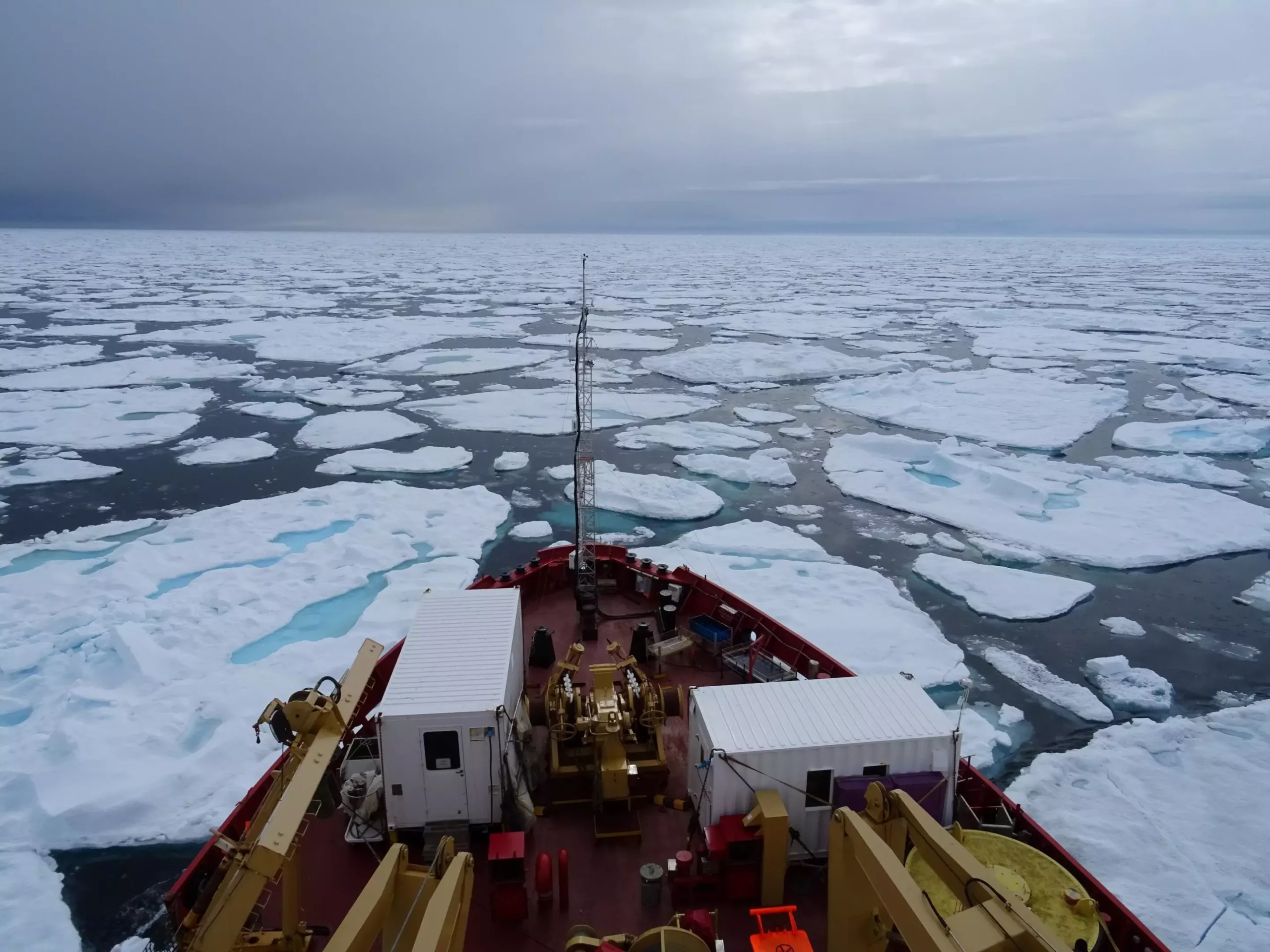The Northwest Passage, a once-promising route anticipated to revolutionize shipping amidst the backdrop of climate change, is not delivering on its potential. According to a revealing analysis in *Communications Earth & Environment*, the expected lengthening of an ice-free shipping season has, counterintuitively, curtailed navigability in several regions of this Arctic waterway between 2007 and 2021. This disruption raises fundamental questions about our understanding of climate dynamics and their implications on global trade routes.
The research led by Alison Cook and her team highlights the alarming trend: a marked reduction in the time frame ships can safely traverse the Northwest Passage. Using sophisticated sea ice charts from the Canadian Ice Service, they meticulously mapped the navigability of the region, finding that critical areas suffered a decrease of up to 14 weeks of accessible shipping. This significant finding contradicts earlier optimistic projections that a warming climate would diminish ice and consequently expand maritime opportunities.
Understanding the Dynamics of Ice Flow
Delving deeper, it becomes clear that the nature of the ice itself is shifting. The influx of older, thicker ice descending from the Arctic Ocean not only complicates navigation but also alters the risk profile for vessels attempting to traverse these northern waters. Unlike younger ice that is more forgiving to navigate, this older formation presents formidable challenges, creating hazardous choke points in the M’Clure Strait, Viscount Melville Sound, and other critical areas.
What was traditionally seen as a potential boon for shorter shipping routes is shifting into a perilous challenge. The implications are profound; that choke points can drastically limit shipping efficiency and safety draws attention to the unpredictability of climate effects. Moreover, the evidence posited by Cook and her colleagues implies a grim reality: the Northwest Passage may not become the shortcut that industries and businesses envisioned.
The Ripple Effect on Coastal Communities
Beyond the shipping industry, this significant shift carries repercussions for coastal communities that depend on these routes. The reliance on shipping for essential goods and food paints a stark picture of dependency and vulnerability. As navigability decreases and risks increase, these communities face heightened challenges in obtaining necessary supplies, which can exacerbate existing socioeconomic issues.
This becomes an issue of not just environmental concerns but also social equity. Those living in the Canadian Arctic Archipelago find themselves at the crossroads of global warming and local survival. As global trade anticipates alternative routes, the disconnect between corporate ambitions and the lived realities of Arctic inhabitants illustrates a dire need for a more nuanced approach to climate resilience and community support.
Reassessing Our Assumptions
The findings compel us to reevaluate our assumptions about climate change and its intended consequences. Instead of viewing the warming Arctic as an opportunity for expanded trade and commerce, we need to adopt a more critical lens on the realities of ice dynamics that undermine such prospects. The potential of the Northwest Passage diminishing should serve as a wake-up call to policymakers and industry leaders, urging them to pivot from reliance on climate-induced changes to thoughtful, adaptive strategies that prioritize environmental integrity and community welfare.
The narrative surrounding the Northwest Passage is evolving, and with it, our responsibilities as stewards of both commerce and the environment must be questioned and reaffirmed.

